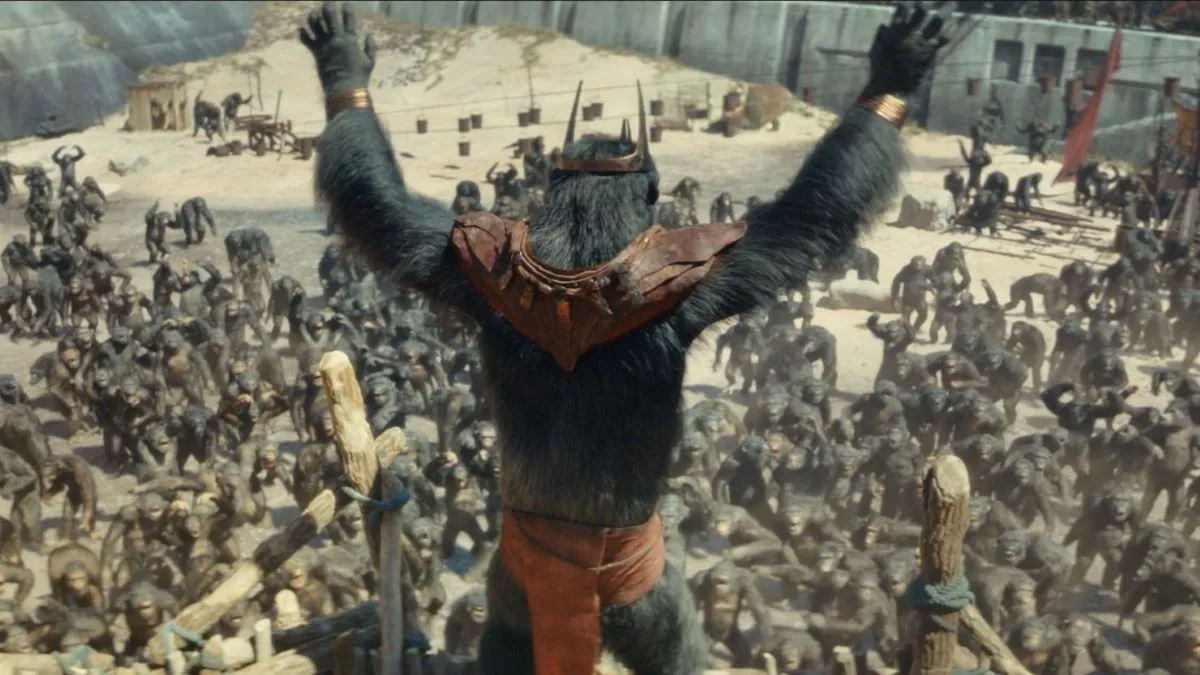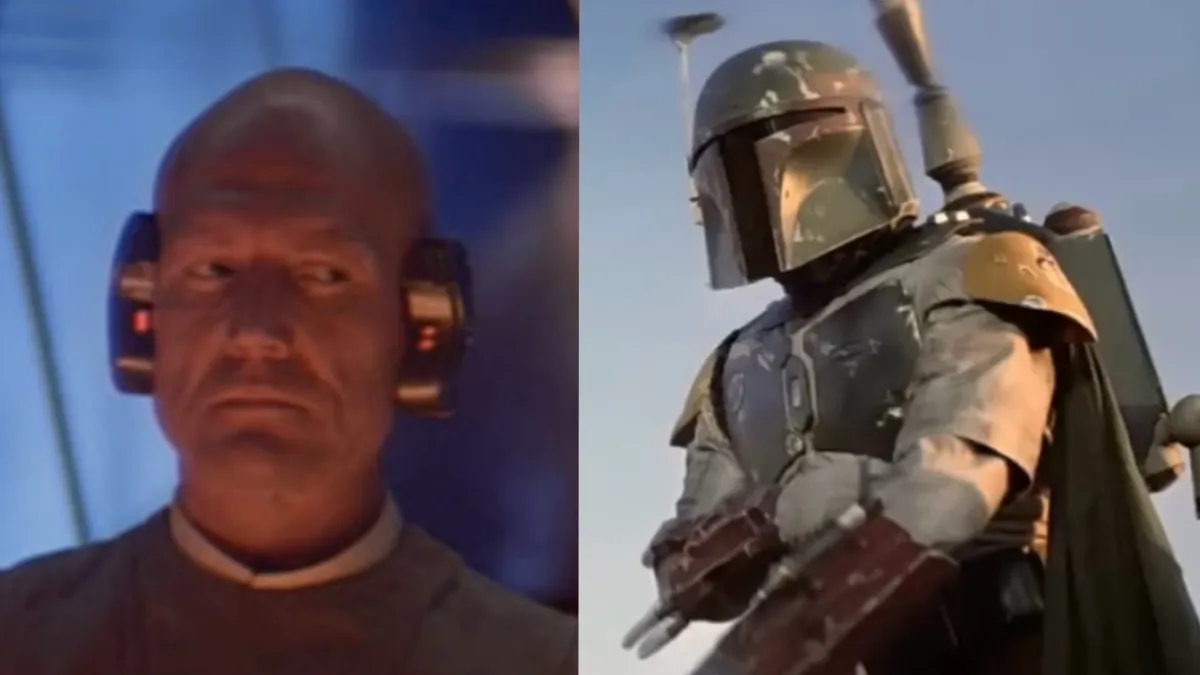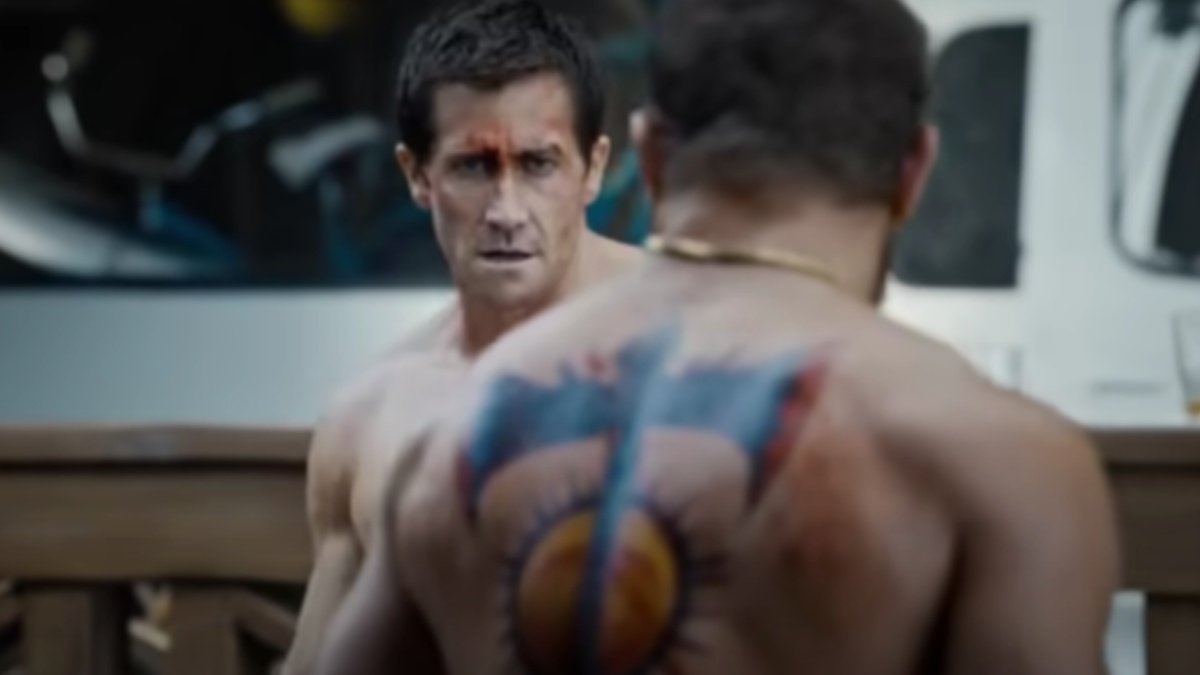As far as modern blockbuster franchises go, you’d be hard-pressed to find better than the Planet of the Apes reboot that began back in 2011 with Rise of the Planet of the Apes. Indeed, when it comes to the harmony of spectacle, gravitas-laden performances, and delectably bold themes, no one is well and truly capable of reaching the heights of the Apes movies these days. And now, with Wes Ball’s Kingdom of the Planet of the Apes, we even have proof that Apes can’t reach the height of Apes.
That’s not to say that Kingdom is an unworthy first successor to the Caesar trilogy; it succeeds quite strongly in carving out a new direction for the franchise to go in, and in a world where fresh ideas tend to be the number one phobia of major film studios, simply displaying that ambition in a canon where it would be all too easy to do more of the same, is a first step that arguably laid a foundation that no mistake could ever truly compromise. And while the final result is a film that’s a bit rougher around the edges than it needed to be, Kingdom quite confidently seals the deal through the animus of Noa; a fantastic protagonist brought to life by the young Owen Teague, whose strikingly intelligent motion-capture performance suggests a wisdom for the craft far beyond his years.
Set 300 years after War for the Planet of the Apes, Kingdom follows the plight of the aforementioned Noa, a young hunter belonging to a clan of apes who share a kinship with eagles. After his home is burned down and his family and friends are captured by the tyrannical Proximus Caesar (portrayed by Kevin Durand, whose ticking time-bomb of a performance doesn’t just steal scenes; it commits full highway robbery of them), Noa sets off on a quest to rescue his clan and bring them home so they can rebuild. He’s joined by Raka, an orangutan who studies the teachings of the real Caesar, and Mae, a human woman who harbors a rather significant secret.
As alluded to above, the single most important piece of Kingdom of the Planet of the Apes is Noa, and while that seems like an obvious statement considering he’s the protagonist, the way in which he not only moves through the film, but also causes the film to move around him, makes him one of the most uniquely kinetic main characters out there; with time, he may even go on to surpass the brilliance of Caesar.
When we’re introduced to Noa, he’s a virtuous but incredibly sheltered chimp who struggles to understand things outside of himself; this is true for the eagles that his clan lives with, and just as true for humans (which he has never properly encountered at this point). In this way, Noa is a relatively passive character, and it’s through this starting point that the identity of the entire film begins to take shape.
Noa’s initial passivity means that he’s naturally capable of existing alongside the world without needing to control everything himself (this is none-too-subtly shown in the first scene we meet him in). This, in a way, enables us audiences to witness the world around Noa; one brought to lushly evocative life by Gyula Pados’ cinematography upon an Earth that has reclaimed itself through the skeletons of our human cities.
This furthermore contrasts with Proximus Caesar, who’s gone and bastardized the original Caesar’s “apes together strong” law to justify his totalitarian rule. To the original Caesar, strong means safe; to Proximus, strong means the ability to conquer. In this way, Kingdom is perhaps more akin to the original 1968 film than the Caesar-centric reboot trilogy; over 50 years ago did Franklin J. Schaffner’s flick pose the question of what “better” looks like when it comes to civilization. With Kingdom, we may now be in the midst of a trilogy that wants to explore that question a bit deeper than its legendary ancestor did.
But for the moment, Kingdom has made very clear what better does not look like; bigger. Indeed, it’s no coincidence that Noa’s home is one of quaint openness and stimulating flora, whereas Proximus’ assimilatory kingdom boasts a more industrial, crunchy compactness to it (even less of a coincidence, perhaps, is the fact that those living under Proximus’ rule are all crammed into a washed-up ocean liner; indeed, when a society chases conquest and glory and neglects actual quality of life, Kingdom suggests it goes the way of the Titanic, as though Proximus’ slaughter-happy gorillas weren’t enough of a tell as is). This comes full circle during Noa’s battle against Sylva, one of Proximus’ most elite troops; exactly how that bow is tied is something you’ll have to see for yourself, but know that it’s at once a stroke of genius.
By then, Noa has long since left his passivity behind, angered by Proximus’ destruction and that which enables it, and has vowed to do something about it. Teague marks this transition magnificently, conveying Noa’s sureheaded, gung-ho, creative penchant for leadership just as deftly as he embodied the protagonist’s reluctant anxiety just an hour and a half ago. It’s an excellent performance that does many a favor for Kingdom; a favor that Kingdom unfortunately doesn’t quite return in full.
Visual storytelling is Kingdom‘s strong suit, and that’s apparent both in its thematic building blocks, and the fact that the film is at its weakest whenever the dialogue amounts to more than the simpler syllables uttered by the apes (this is most glaringly clear in William H. Macy’s character Trevathan, who brings the movie down through no real fault of Macy himself). The plot as a sequence of events is sturdy enough, but Kingdom is far and away at its best when it allows its scenes — and particularly Noa — to simmer and breathe and float between the margins, as it were. Obviously, the movie needs moments where it’s not doing those things, and while those moments could have used a bit more time in the oven, Kingdom knew what it was working with, and they polished that which mattered most (Noa, Proximus, its central ideas, and Mae to an extent) to near perfection. That was undoubtedly the right choice.
In summary, Caesar should be looking down on his standalone successor with all the pride in the world, because Wes Ball has carried the Planet of the Apes torch forward with a strong first step, laying the groundwork for a new era of Apes films that look all but ready to stand next to the Caesar trilogy, rather than upon its shoulders. Teague navigates the mo-cap gig like a seasoned pro, and while Kingdom isn’t quite the homerun it could have been, it still got enough batters across home plate to be worthy of many a stellar compliment; certainly more than that baseball metaphor just now.







